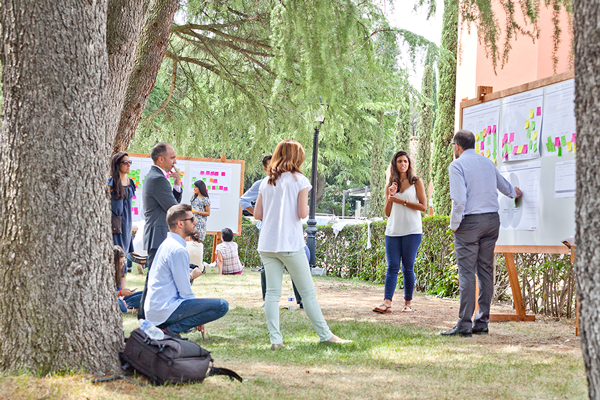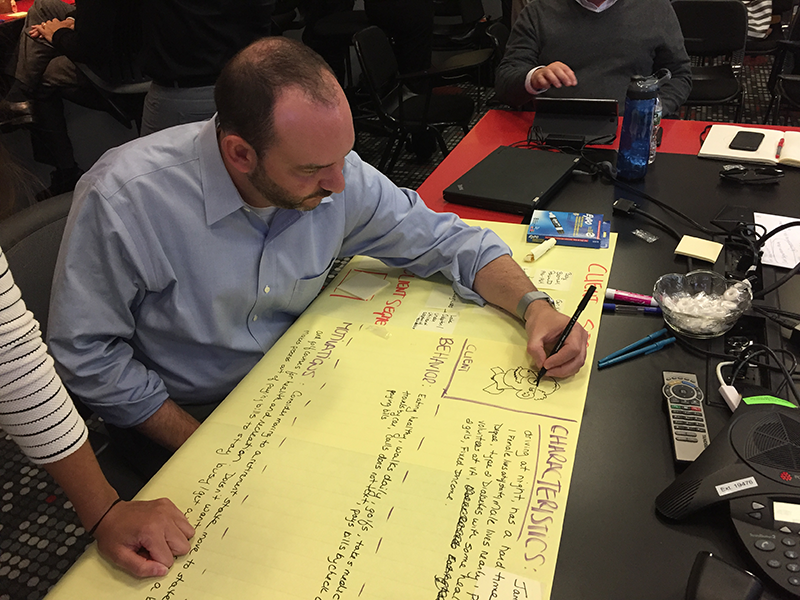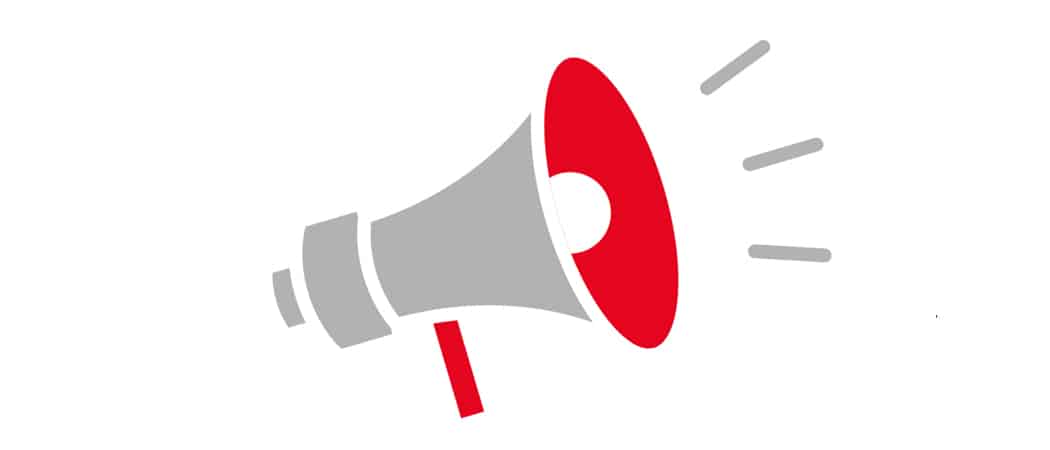For MAPFRE, training in innovation methodologies provides the company with resources to face its major challenges in a transversal fashion, always with our customers in mind.
TEXT ANA GUTIÉRREZ (@alvana72) | PHOTOGRAPHS MAPFREMAPFRE
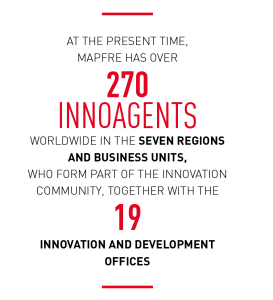
MAPFRE identifies innovation as a key lever for promoting the company’s organic growth and differentiation within an ever-changing environment. For MAPFRE, innovation is a transversal lever which provides customer-centric differential value propositions so as to better respond to certain specific challenges posed by the various business areas.
In order to disseminate the innovation culture, MAPFRE Innolab was created in 2015. This virtual learning space within the framework of the Corporate University is designed to provide support to innovation initiatives worldwide. The ultimate goal is to reach all of the company’s employees. Thanks to Innolab, all our employees around the world can access an online training program whose contents outline the methodologies underpinning the innovation process within MAPFRE and help employees assimilate it.
In addition to this training program, designed jointly by the Corporate Innovation Division (DCI) and the Corporate Human Resources Area, a process was initiated to identify employees around the world capable of implementing innovation in MAPFRE. They are the innoagents, those assigned the role of implementing innovation in their respective work areas. The innoagents continue carrying out their normal duties within the company, but they devote a percentage of their time to participating in certain business challenges posed by the company.
In order to be able to fulfill this function, a specific training program was designed to train them in agile, interactive methodologies, inherent in innovation.
The section that supports this function – Innolab – offers training programs which ensure full support for innovation and provide more profound knowledge of the process and its underlying methodologies: Design Thinking, Lean Startup and Customer Development.
MAPFRE needs to have people capable of tackling the challenges facing the insurance industry in the future, putting forward original – and, in some cases, even disruptive – ideas, and who are committed to efficiency.
At the present time, MAPFRE has over 270 innoagents worldwide in the seven regions and business units, who form part of the Innovation Community, together with 19 Innovation and Development Offices. These professionals are deeply committed to developing innovation projects, thereby adding value to the company, as well as conveying an innovation culture at all organizational levels and sharing information that is deemed relevant to the business.
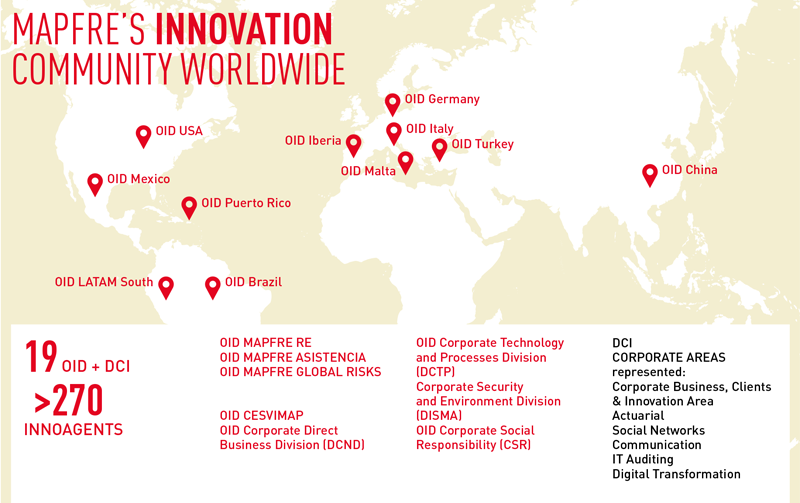
Innovation training has made progress and achieved highly satisfactory results, producing people capable of undertaking projects in an agile, creative manner.
MAPFRE’s firm commitment to innovation has made it possible for over 5,800 employees around the world to receive training via the online program. In addition to this program for all employees worldwide, and the specific classroom training for innoagents, a Design Thinking session was included on all the transversal sales and technical global training programs, and at the leadership school for all groups of both technical and managerial personnel.
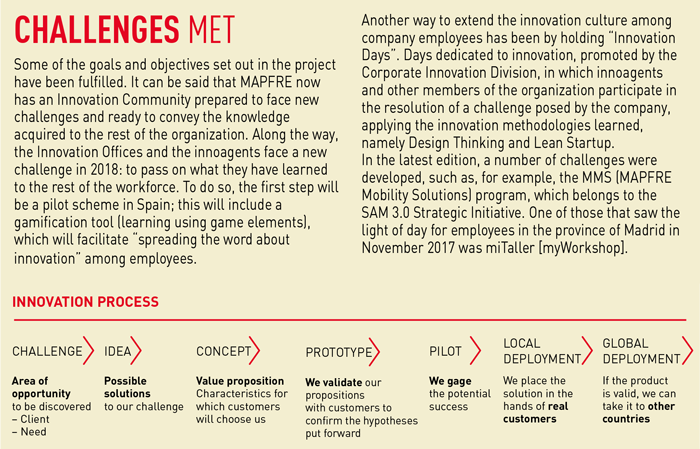
And now, what are the next steps?
We have come this far, but if the effectiveness of this training – and, thus, its ROI – is not gaged, nor the value added to the business analyzed, we will not know if we have done well or not. This is why the members of the Innovation Community must put into practice the knowledge acquired and participate in projects specifically linked to the strategic challenges identified. In particular, the innoagents must be fully involved in the execution of such projects, so as to put into practice what they have learned about agile methodologies and thus create value.
Over the last two years, 12 percent of all the ideas from our innoagents have been included in local strategic business plans to be implemented in 2018, or have reached the prototype phase (the latter meaning that the innovation project has already gone through the design, research and conceptualization stages). They are therefore ready to be tested in a pilot phase with real clients, in order to validate the value proposition that was put forward.
Innovation consists of a continuous exercise, with ongoing training; it is a process of trial and error.


